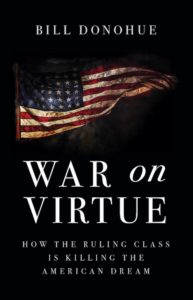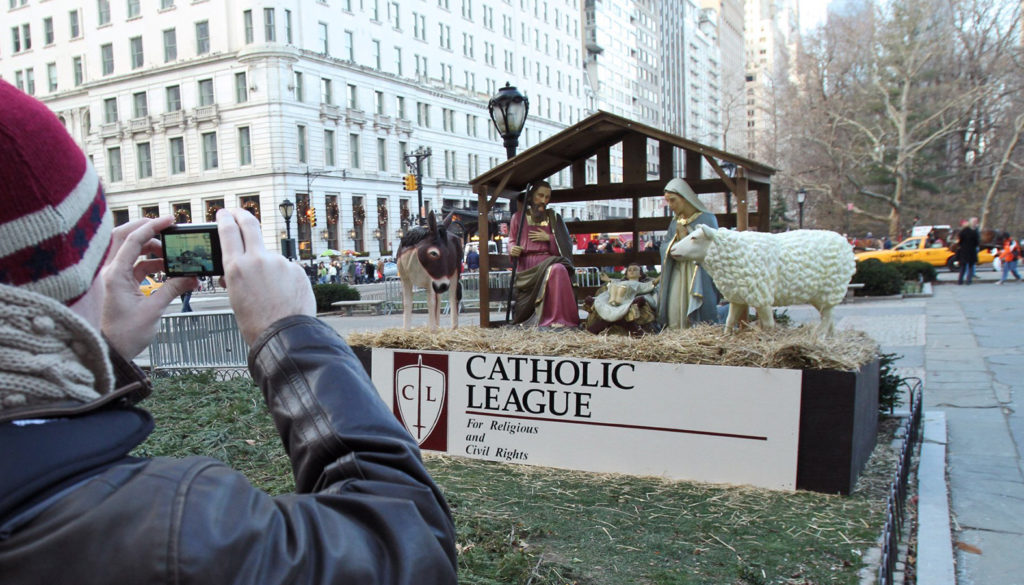Father Virgil Blum was fed up.
He’d had his fill of anti-Catholicism and the frequently feeble Catholic response. So Blum, a feisty Jesuit professor of political science at Marquette University, decided to do something concrete about it by founding a Catholic anti-defamation organization to protect the good name and interests of the Church.
Fifty years later, that organization — the Catholic League for Religious and Civil Rights — is still going strong. And although anti-Catholicism also is thriving in some sectors of American life, the bigots know that thanks to the Catholic League, they can count on a fight.
Blum died in 1990. “While many important battles have been won since that time, the threat continues to mount,” says his successor, William Donohue, a sociologist and former university professor, who in July will mark his own anniversary — 30 years at the helm of the Catholic League.
A scan of the Catholic League’s newsletter Catalyst suggests the scope of its current interests, from infringements on religious rights at universities to the exploitation of children in the name of transgenderism and the tepid response of the U.S. Department of Justice to attacks on pro-life centers and Catholic churches. Other items: a defense of New York Mayor Eric Adams against criticism aimed at him for speaking at an interfaith breakfast, and an essay on the worldwide upsurge of Christian persecution.

The 50th anniversary also brings the publication of a new book by Donohue, “War on Virtue,” with the characteristically challenging subtitle, “How the Ruling Class Is Killing the American Dream” (Sophia Institute Press, $21.95). Crammed with documented zingers aimed at liberal media, woke corporate executives, and compliant politicians, the book makes a spirited defense of traditional values, including three that the author considers especially fundamental to the American way — self-discipline, personal responsibility, and perseverance.
Writes Donohue: “These three virtues — these vital virtues — may not guarantee success, but their absence guarantees failure.” And, he adds, they are under “serious attack by the ruling class” via efforts to undermine the traditional family and control the schools. As it stands, he contends, “We are raising a generation of young people who have no idea what it is like to give back or to develop a sense of responsibility to others.”
While there is a need for a new religious coalition for a revival of the virtues, Donohue argues that citizen involvement in school boards and ballot initiatives also is essential as part of a “concentrated campaign” to restore value education. To the extent that is now happening, he adds, “For the first time in many years, the ruling class is experiencing pushback.”
People who don’t like Donohue call him brash, noisy and — naturally — conservative. He is not well-liked in progressive Catholic circles. But he has the courage of his convictions and a deep love for the Church. And, as a polemicist with a Ph.D., this skilled debater is careful to get his facts straight.
Looking at the Catholic League a half-century after its founding, Donohue says he is “proudest” that, unlike groups funded by foundations and wealthy donors, the Catholic League gets its support from the grassroots. As for the future: “What the next 50 years will bring is anyone’s guess. But it is my sincere hope that the Catholic League will continue to thrive and beat back the bigots with vigor.”
When the Catholic League for Religious and Civil Rights marks its first half-century at an April 27 gala at the New York Athletic Club, it will have plenty to celebrate.

